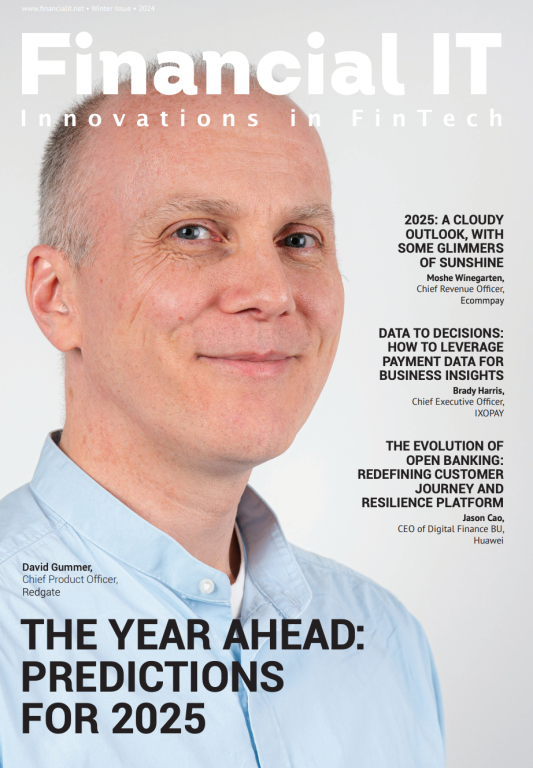How Digital and Modern Banking Services are Changing the Financial Services Sector in Africa

- Phyllis Migwi, Country Manager at Microsoft Kenya
- 20.09.2022 01:30 pm #banking
The digital revolution is changing how banking gets done. Every bank is eager to evolve, using secure and compliant technology to fundamentally reimagine its business. This is innovation with real impact: changing customer expectations, meeting complex regulations, dealing with new competitors, combating cyber threats, and inspiring a productive workforce.
Maintaining a competitive edge and differentiation means understanding customer needs and adapting to market trends while reaching the underserved and the unbanked. The goal for every financial services organization is to create loyal fans, not just customers, by delivering true value through personalized experiences.
For financial service organizations, the focus must be on driving and empowering digital transformation across their organizations end-to-end with a holistic viewpoint, embracing tech intensity rather than focusing on specific digital products and tools.
Empowering modern banking
There are a number of key trends driving the evolution of the financial services sector. The expanding power of FinTechs and big tech, along with evolving customer experience expectations are two important trends, while increased regulation is constraining growth and adding costs. Legacy systems are impeding innovation and transformation, while the growing threat of cybercrime is a challenge the industry must tackle head-on.
Customers are leveraging digital engagement channels more than ever, and in response, financial services organisations are seeking to deliver differentiated customer experiences. The rise in the adoption of digital banking products during the pandemic has driven banks to expedite their digital transformation agendas.
Digital-forward banks are leading the way
FinTechs have had an agile approach to digitalization, and this is now influencing how enterprise organisations are approaching their digitalisation. Many financial institutions aim to grow responsibly and deepen their customer relationships by delivering differentiated customer experiences. Digital-forward banks are leading the way when it comes to investing in digital experience for offerings such as lending. Transforming the financial services landscape will help drive economic prosperity continent-wide and will make financial services more accessible to the under-banked and previously unbanked.
The pandemic has accelerated digital adoption addressing current needs while balancing for the long term. Financial services organizations have chosen cloud services to drive digital transformation because of the ability to speed up deployment, lower complexity and manage upfront investment. The ability to accelerate innovation to drive down costs is critical to success.
Ecosystem Banking – focus on the experience, not the product
As part of the need for differentiating new experiences, risk management, and compliance, the financial services industry is seeing the shift towards open and interconnected ecosystems through the modernization of core platforms including payments and core banking systems. Banking and payments are becoming more open environments than ever before, with customers benefitting from a huge range of new and useful products.
This is enabled by Banking as a Service (BaaS), which offers an ecosystem in which licensed financial institutions integrate their banking services directly into the products of non-bank businesses. Connected BaaS provides the ability to manage an ecosystem of partners from recruitment, licensing, partnering and referrals.
BaaS built in the Cloud enables security, compliance and governance fully enabled, integrated and automated seamlessly across the entire services platform. BaaS removes many of the barriers that businesses previously faced when trying to launch or integrate financial products and unlocks banking.
A trusted platform is the foundation for running financial services in the cloud, and organizations that continuously develop to stay at the forefront of technology will become the digital leaders of the future and maintain their competitive edge.
The FSI industry must adopt stringent compliance and security measures
The industry is experiencing a level of regulatory scrutiny that is unprecedented in its intensity. Financial institutions that best manage their regulatory and compliance data will be on a path to stronger risk management and improved operational efficiency. And while financial institutions want new innovations to deliver better value to customers, they will not make the cut unless they are operating within appropriate compliance constructs.
To create a safer world empowered by digital transformation, Microsoft adheres to the strictest security and privacy standards in the industry to in turn enable financial sector to manage its data footprint and create its own governance. Microsoft’s cybersecurity strategy utilises massive amounts of machine learning, and data analytics to detect and respond to anomalous behaviour from inside and outside the organisation.
Choosing the right technology partner in this process of digitalisation is crucial
Organisations in the financial services sector are innovating to complete their digitisation through platform modernisation, digital client engagement and digital employee enablement.
Financial institutions need a mature provider of financial service platforms to enable a modern banking ecosystem with a focus on reducing end-to-end and capital expenditure while leveraging technology. These institutions benefit from having a partner who will provide them with industry advisory, and digital advisory and who will partner with them in the process of moving from being a legacy traditional financial services organisation to one that is digitally focused.
At Microsoft, understanding the financial services industry’s needs and objectives is very important to us. We want to ensure that every organization has the digital capability required to succeed going forward and are committed to helping our financial services customers improve time to value, reduce costs, increase agility, and accelerate innovation for sustainable growth.
For more information email Mohammed@intercsa.com or call +44 20 3808 8625
To register or nominate www.connected-banking.com


























